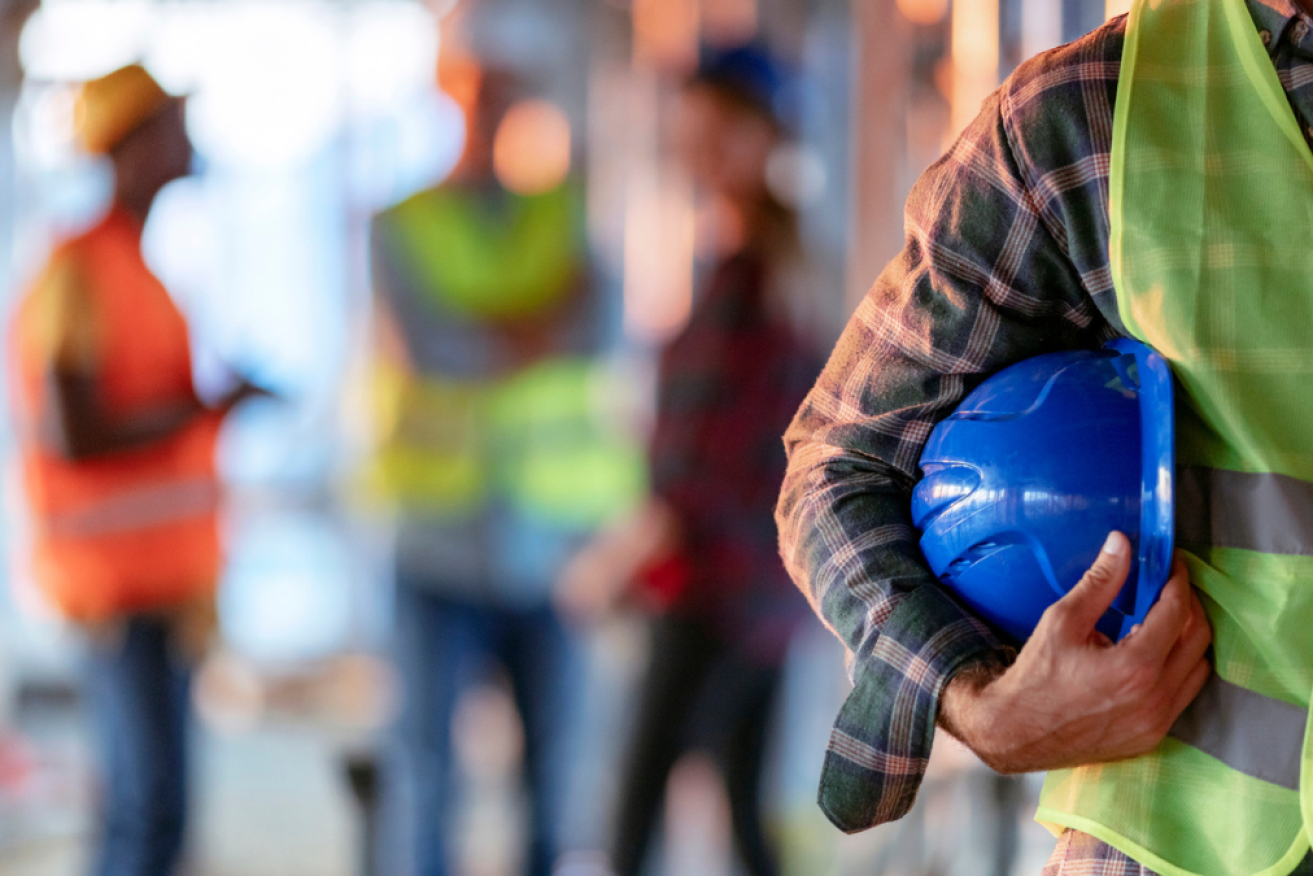‘In a bad way’: Stressed-out tradies urged to seek mental health support


Thousands of Australia's tradies are struggling with mental health. Photo: Getty
Tony Toholke has an important message for tradies.
More than a decade ago, Mr Toholke decided to quit booze after a health scare landed him in hospital.
The 52-year-old soon realised his unhealthy relationship with alcohol was a way to deal with his worsening mental health, which had deteriorated after he took a job requiring him to drive about 3000 kilometres every week around western Queensland.
“I ended up drinking a bottle of rum at night, and probably not in the best place in the world,” Mr Toholke told TND.
“I had a bit of a health scare, [so] I lost a lot of weight, got off the alcohol and I thought I was going to be fantastic. But then I found that I missed a promotion at work, and the alcohol had masked my mental health for many years.

Tony Toholke believes more attention should be paid to mental health. Photo: Tony Toholke
“Without the alcohol, I ended up in a very bad way, and I was lucky that my wife and a friend of hers intervened and took me straight in the hospital and got some help on a particular day.”
Mr Toholke has now been working in mining and construction for the past 13 years, and he’s passionate about getting his story heard to let tradies know it’s OK to ask for help.
This message is especially vital as construction workers face increasing pressure with the collapse of several large companies.
Rather than face the months-long wait for appointments with clinical psychologists, Mr Toholke uses texts and calls with counsellors from blue-collar counselling service This Is A Conversation Starter (TIACS) to keep him grounded before his mental health dips to “crisis” status.
Tradies asking for help
TIACS has only been in operation for three years, but it has already supported more than 16,500 Australians, with a focus on tradies, truckies, rural and blue-collar workers.
While tradies make up less than one-third of all people in employment in Australia, they are over-represented in suicide rates, with about 190 construction workers dying by suicide every year.
Jason Banks, head of partnerships at TIACS, said tradies often face issues like delays in payment, isolation and a lack of mental health support initiatives that are increasingly found in white-collar industries.
Construction workers are the biggest demographic asking for help among blue-collar workers.
TIACS aims to provide a relatable text or call service for tradies and other blue-collar workers to reach out to before they reach crisis point.
“We often talk about here at TIACS that physical fitness is so key, and people might go to the gym or they might go and see a personal trainer,” Mr Banks said.
“Think about an organisation like TIACS [like] we’re your personal trainer for your mental fitness; things are going well, but you might know that you’re having a rough few challenges ahead, so get on top of them early before they actually get a little bit more in-depth.”
‘Expected to just get on’
John Mendoza principal consultant at ConNetica and adjunct professor at the University of Sydney’s Brain and Mind Centre, said mental health issues tend to be swept under the rug in male-dominated industries, such as trades.
For workplace mental health and wellbeing, context is almost everything. Professor Mendoza said a sole operator is in a very different position, and faces different pressures, to someone undertaking an apprenticeship with a large organisation.
“Put yourself in the shoes of the young tradesperson that goes on to a major building site,” he said.
“You’re sort of expected to just get on and know what you’re doing, and in a male dominated workforce, you’re less likely to ask questions [like], ‘Have I got this right? Or have I made some sort of stuff-up?’
“Reaching out and asking for help doesn’t come naturally in a lot of those workplaces, so people carry that anxiety.”
Professor Mendoza said a lot of men going through their apprenticeships and early trade years are drinking excessively, gambling and taking drugs.

A more open and supportive working environment could do wonders for the mental health of tradies. Photo: Getty
There needs to be an investment in leadership of organisations so that workers are being well-managed and mentored, Professor Mendoza said.
He said if companies get the following fundamental factors right, along with a growing awareness of mental health, a lot of other issues will take care of themselves:
- Make sure workers know what’s expected of them
- Make sure workers know how well they’re doing, at least on a weekly basis at the team level
- Let workers know how they can do better, and provide the means and tools to help them reach that higher standard
- Make sure workers understand how they’re contributing to the bigger picture; what will their work mean for the company and wider community?
If you’re struggling, please contact:
- Lifeline: 13 11 14
- beyondblue: 1300 22 4636








